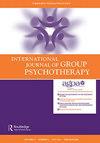REACH 宽恕:对小组有效性的叙述性分析。
IF 1
4区 心理学
Q3 PSYCHOLOGY, CLINICAL
International Journal of Group Psychotherapy
Pub Date : 2024-04-26
DOI:10.1080/00207284.2024.2340593
引用次数: 0
摘要
在这篇叙述性综述中,研究了 REACH 宽恕心理教育团体干预的有效性。REACH 是一个缩写,用于提示记忆情感宽恕的步骤:R = 回忆伤害;E = 同情;A = 利他主义的宽恕礼物;C = 承诺宽恕;H = 坚持宽恕。总之,对报告了 REACH 宽恕心理教育小组结果数据的 24 项研究进行了列表和检查。之前的荟萃分析发现,效果大小与宽恕干预所花费的时间呈线性关系;因此,作为定性比较的辅助手段,我们对每小时(即 d/hr)的效果大小(用 d 表示,即前后平均值的差异除以汇总标准偏差)进行了研究。总体而言,平均 d/hr = 0.089。沃辛顿是共同作者的 12 项 REACH 研究(即效忠效应)的 d/hr 为 0.093,而他不是共同作者的 6 项研究的 d/hr 为 0.065。与基督教样本(k = 9;d/hr = 0.107)相比,世俗样本(k = 11;d/hr = 0.077)的 REACH 宽恕效果略好。文化适应(宗教除外)的效果参差不齐。在临床样本中,只有两项REACH宽恕研究对心理教育小组进行了研究,两项研究对心理教育与宽恕过程小组疗法进行了比较。使用 "REACH 宽恕 "的团体心理教育在哪些领域无效(如夫妻团体、大学预科青年),或与其他替代方法(如自己动手做的工作手册)相比效果较差。讨论了开展 "REACH宽恕 "小组研究的最佳实践标准。本文章由计算机程序翻译,如有差异,请以英文原文为准。
REACH Forgiveness: A Narrative Analysis of Group Effectiveness.
In this narrative review, the effectiveness of the REACH Forgiveness psychoeducational group intervention is examined. REACH is an acronym to cue memory for steps in emotional forgiveness: R = recall the hurt; E = empathize; A = altruistic gift of forgiveness; C = commit to forgiveness experienced; H = hold onto forgiveness. Overall, 24 studies that reported outcome data on REACH Forgiveness psychoeducational groups were tabulated and examined. Previous meta-analysis had found that effect size was linearly related to time spent in forgiveness intervention; thus, effect size (denoted by d, pre-post difference in means divided by pooled standard deviation) was examined per hour (i.e. d/hr) as an aid to qualitative comparisons. Overall, mean d/hr = 0.089. Those 12 REACH studies in which Worthington was a coauthor (i.e. the allegiance effect) had a d/hr of 0.093 versus 0.065 for the six in which he was not a coauthor. REACH Forgiveness with Christian samples (k = 9; d/hr = 0.107) had slightly better outcomes than did REACH Forgiveness with secular samples (k = 11; d/hr = 0.077). The effects of cultural adaptation (other than religion) were mixed. For clinical samples, only two REACH Forgiveness studies examined psychoeducational groups and two compared psychoeducation with process group therapy for forgiveness. Areas in which group psychoeducation using REACH Forgiveness was not effective (i.e. couple groups, pre-college youth) or less effective than alternatives such as do-it-yourself workbooks were identified. Best-practice standards for conducting group research on REACH Forgiveness were discussed.
求助全文
通过发布文献求助,成功后即可免费获取论文全文。
去求助
来源期刊

International Journal of Group Psychotherapy
PSYCHOLOGY, CLINICAL-
CiteScore
2.30
自引率
7.70%
发文量
16
期刊介绍:
Recognized as the leading source of information on group therapy theory, practice, and research, this journal features contributions from foremost experts in the field. International Journal of Group Psychotherapy offers: - Clinical articles on group treatment models, process issues, and techniques - Research reviews that keep practitioners up to date - Thought-provoking essays in the Reader"s Forum and Commentary sections - Reviews of current books and video releases - Special issues on such topics as evidence-based practice and ethics
 求助内容:
求助内容: 应助结果提醒方式:
应助结果提醒方式:


